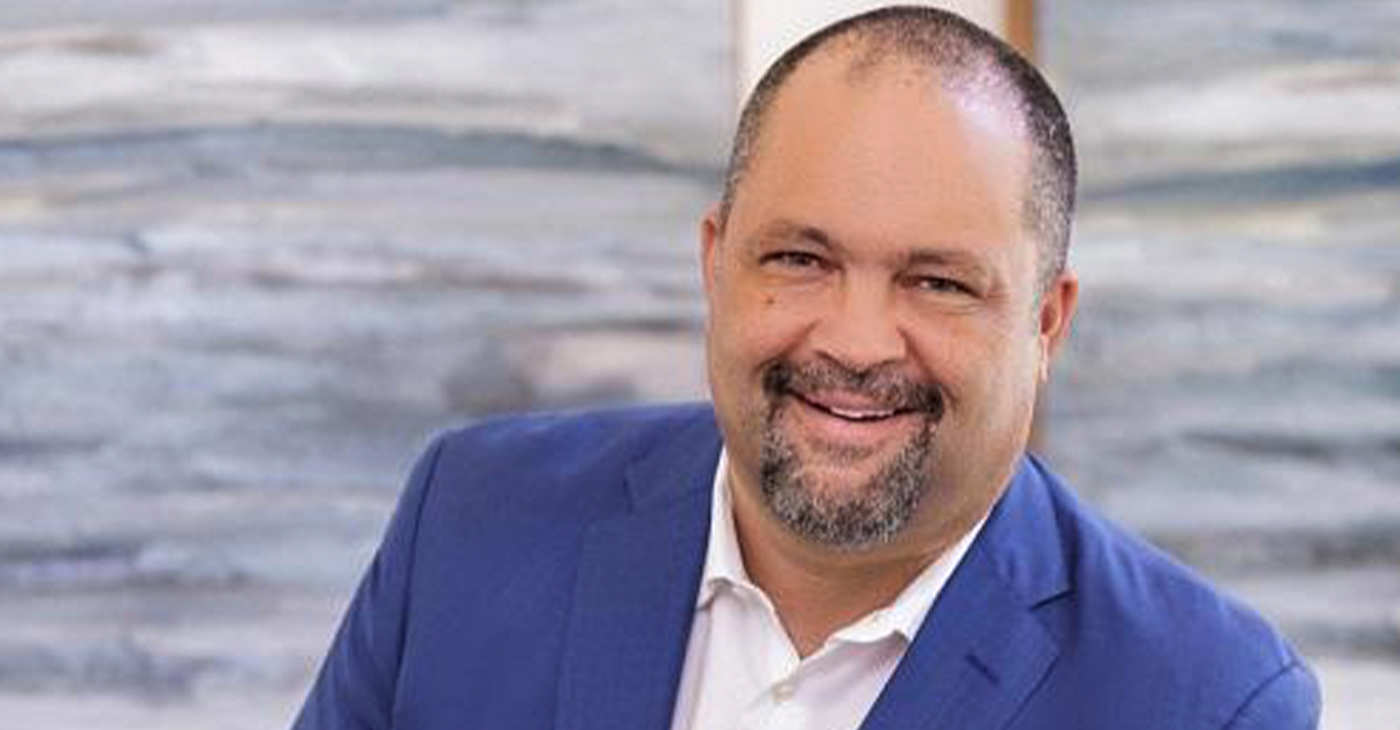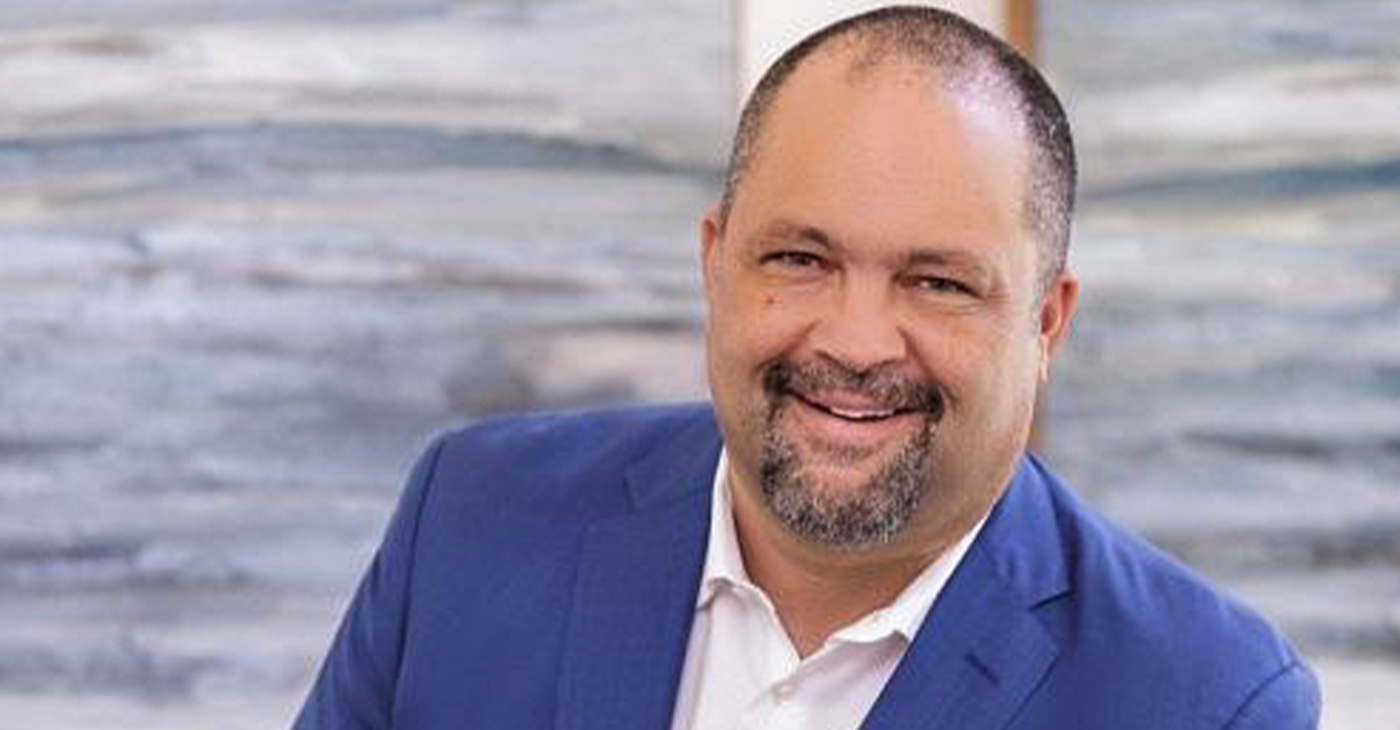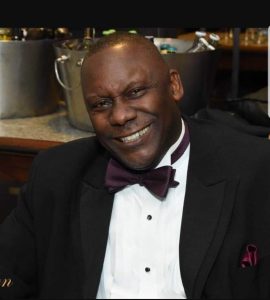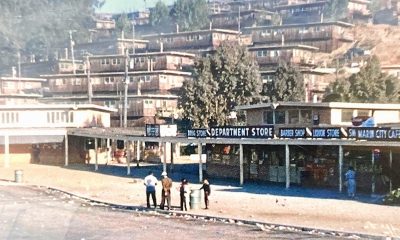Ben Jealous
Readjusting Our Historical Perspective Can Guide Us Today
Gov. Ron DeSantis continues to try to elevate his presidential chances while doubling down on banning Black history. Meanwhile, the rest of us would be better served by reading more of it.

By Ben Jealous
Gov. Ron DeSantis continues to try to elevate his presidential chances while doubling down on banning Black history. Meanwhile, the rest of us would be better served by reading more of it. We should go even further by mining American history to find what’s been hidden from us by previous political opportunists that can give us blueprints for how to create a national politics of unity rather than division.
I decided to start by digging into my own family’s history. What I found shocked me.
At the end of the 19th century, my maternal great-great-grandfather, who had been born into slavery, helped build a political party called the Readjusters that took control of the state of Virginia. Here’s what got my attention — it was a multi-racial populist party led by a former Confederate general and a freedman that was pro-workers’ rights, pro-civil rights, pro-voting rights, and pro-public education.
Stop here if anyone taught you that 15 years after the Civil War, Johnny Reb and the freedmen came together to form a new party that won elections for local, state, and federal offices.
How could people who had been enslaved come together with people who had fought a war to keep them in slavery? They all wanted a better future for their kids and to hold on to the new public schools their children attended.
At the time, plantation-class oligarchs were using the state’s Civil War debt as a wedge issue to anger whites. But their class bias pushed them too far. They said they would shut down the newly created public schools to pay for the debt.
In response, many white men (remember only men voted in those days) whose families relied on and supported the schools fled the Democratic Party. They launched the Readjuster Party. Their name came from their demand: readjust the terms of Virginia’s Civil War debt to save the public schools. My grandmother’s grandfather, Edward David Bland, led the state’s Black Republicans into the Readjusters. It was an easy argument to make; after all Black Republicans had created the state’s public schools a little over a decade before. In the process, they became the majority of its new party’s base.
In less than five years, the Readjusters saved Virginia’s public schools, expanded Virginia Tech, and created what is now Virginia State University, the first publicly supported college for training Black teachers. They raised taxes on corporations and the property they owned, reversing a deficit into a budget surplus. They did away with the poll tax and with the public whipping post.
White men who rented their farms or were otherwise too poor to own land had only had the right to vote since the 1820s. Black men had only had it since the 1860s. And by the early 1880s large numbers of both groups had united in multiple states and were winning major political victories.
To break up a thriving coalition of Black and white farmers and workers, the old plantation owners turned to a tried-and-true playbook. They spread vile disinformation to make other whites fear the loss of political superiority.
They accused Black men of fictitious crimes. The disinformation sparked violence in Danville where there was a majority Black city council and a fully integrated police force. Two white men responded to the propaganda by murdering whites and Blacks in the streets.
With the Readjusters defeated, white supremacist politicians went on to pass an annual poll tax (equal to $50 today). It slashed the Black vote by 80% and the white vote by 50% and it eventually was enshrined in the state Constitution.
By denying the vote to so many Blacks and low-income whites, white supremacists essentially outlawed the kind of multiracial coalition that had beat them in Virginia and was chalking up victories in other states.
Even when students learn about the poll tax, that’s not the story most are taught. It’s truly a lesson in the promise of the power of coming together. It’s also a lesson in the lengths to which wealthy special interests will go to divide us.
Meanwhile, that’s a lesson that DeSantis and his wealthy donors are teaching us again. After all, it’s the history we forget that is most easily repeated.
Ben Jealous is incoming executive director of the Sierra Club, the oldest and most influential grassroots environmental organization in the country. He is a professor of practice at the University of Pennsylvania and author of “Never Forget Our People Were Always Free,” published in January.
Ben Jealous
COMMENTARY: Ensuring Our Right to Invest in the Next Generation’s Future
If a public opinion poll done last month is right, more than half of you won’t know what I mean by the initials “ESG,” and fewer than one in 10 will understand what they mean for financial markets. But listening to some self-interested politicians, many of whom have ties to our dirtiest industries, you’d think ESG was a significant threat to the American way of life.

By Ben Jealous
If a public opinion poll done last month is right, more than half of you won’t know what I mean by the initials “ESG,” and fewer than one in 10 will understand what they mean for financial markets. But listening to some self-interested politicians, many of whom have ties to our dirtiest industries, you’d think ESG was a significant threat to the American way of life.
For the record, ESG refers to responsible investing that considers companies’ environmental, social, and governance practices. That’s actually something most Americans support. More than half of us think financial managers should be allowed to consider environmental factors, climate threats, and the risk involved in fossil fuels’ future and that states should invest public retirement funds in clean energy. More than eight in 10 of us who invest for ourselves want sustainable options for our savings, Morgan Stanley reported.
In economics class, we called that demand.
In his 2022 annual letter to CEOs, Larry Fink, chairman of the world’s largest investment adviser BlackRock, called it “stakeholder” capitalism. “It is capitalism, driven by mutually beneficial relationships between you and the employees, customers, suppliers, and communities your company relies on to prosper. This is the power of capitalism,” he wrote, adding, “We focus on sustainability not because we’re environmentalists, but because we are capitalists and fiduciaries to our clients. That requires understanding how companies are adjusting their businesses for the massive changes the economy is undergoing.”
Perversely, Fink has been pilloried by right-wing politicians as a green ideologue when his firm claims to be the largest single investor in fossil fuel companies on the planet. These same politicians are trying to prohibit this kind of responsible investing through state and federal laws.
They argue they are fighting for free market capitalism when really they are limiting investors’ freedom to choose and the information that they need to make decisions. It’s not free markets, it’s political pressure.
The costs of these mistaken and misrepresented policies are real. Economists from the Federal Reserve Bank of Chicago and the University of Pennsylvania determined that within eight months of Texas passing a law that prevented local governments from using five of the largest bond underwriters taxpayers would pay $300-$500 million more on $31.8 billion those governments wanted to borrow. That amounts to about a 1% tax on that debt. Not to mention the banks cut out of the Texas market have Texas employees whose companies can no longer compete in their state.
Fortunately, some public officials are insisting that they be allowed to shape portfolios in ways that are fiscally sound precisely because they consider environmental impacts. I was in New York City last week for an announcement by city Comptroller Brad Lander and the trustees of the New York City Employees’ Retirement System and the Teachers Retirement System of their plan to reach net zero pollution from emissions in their investment portfolios by 2040.
“If the cynical war of political distraction waged by red-state politicians at the behest of their fossil-fuel donors deters us,” Lander predicted, “we will sacrifice our opportunity to maximize long-term investment returns along with millions of lives and trillions of dollars of global investment.”
Opponents of this responsible approach to investing derisively label it “woke” because they know that term creates confusion and for some fear. So, it’s a perfect wedge to divide us. If anything, they need to wake up to the idea that Americans want to pass on a safer, healthier planet powered by abundant energy to our children and our grandchildren. We want to put our money where our aspirations are.
Ben Jealous is executive director of the Sierra Club, the nation’s largest and most influential grassroots environmental organization. He is a professor of practice at the University of Pennsylvania and author of “Never Forget Our People Were Always Free,” published in January.
Ben Jealous
The Struggle Dr. King Gave His Life For
This week in 1968, Rev. Dr. Martin Luther King Jr. was assassinated leading a bold effort to teach America an urgent lesson: racism is not just the boot on the neck of people of color, it is also the great wedge that divides Americans. And everyone who gets divided loses.

By Ben Jealous
(TriceEdneyWire.com) – This week in 1968, Rev. Dr. Martin Luther King Jr. was assassinated leading a bold effort to teach America an urgent lesson: racism is not just the boot on the neck of people of color, it is also the great wedge that divides Americans. And everyone who gets divided loses.
On Dec. 4, 1967, King announced a multiracial “Poor People’s Campaign” that would march on Washington, DC, that summer.
The idea gained traction as groups of poor whites, Asian Americans, Latinos, and Indigenous People joined the campaign being organized by King and Southern Christian Leadership Conference.
In promoting it, King would decry the “idle industries of Appalachia” in the same breath as the “empty stomachs of Mississippi.” The reality, King made clear, is the economic value of poor whites’ labor had been depressed since the days of slavery by the forced labor and continuing oppression of Black people. The divided get conquered.
That idea that working people of all races had common interests to fight for threatened — as it still does today — the old colonial system of divide and conquer that allowed King George and every would-be American oligarch since to extract massive wealth by enforcing massive poverty.
Four months to the day after he announced his Poor People’s Campaign — 55 years ago this week — King was assassinated on a balcony at the Lorraine Motel in Memphis, where he had traveled to stand with striking sanitation workers fighting for decent working conditions.
It’s telling that after all he had been through fighting Jim Crow and segregation — the bus boycott, the first March on Washington, passage of the Civil Rights Act — King was murdered fighting to unite working people across racial lines.
He wasn’t alone. Robert F. Kennedy was gunned down not long after as he ran for president on a similar platform.
Even before King and Kennedy, Harry Moore and his wife were blown up in their home on Christmas 1951 by the Klan. The Florida NAACP leader was organizing the Progressive Voters League seeking to unite Floridians across racial lines and had just led an effort that registered 1 million new voters. Even Malcolm X was assassinated after he returned from Mecca and said unity across racial lines was possible.
Killing those who would unite us is an American tradition older than our nation itself. The first revolt by American colonists was in Gloucester, Virginia, more than 100 years before the Declaration of Independence. Indentured Europeans and enslaved Africans organized to rise up against cruel Virginia plantation owners. The organizers were hanged.
Two years to the day after King announced the Poor People’s Campaign, Black Panther Fred Hampton was leading a “Rainbow Coalition” of Blacks, Hispanics, Asian Americans, and poor whites in Chicago when he was murdered — premeditated and carried out with military precision — by local police.
As in 1968, it’s true today that there are almost twice as many whites trapped in poverty as Blacks. The fact that the nation’s news media render the White poor invisible doesn’t change the facts.
That so many of us still tolerate millions of Americans of every color being trapped in poverty is a factor in the toxic tensions that threaten our domestic tranquility.
It is also proof we never actually learned the lesson Dr. King gave his life trying to teach us.
If you ever forget the logic of King’s final strategy, just pull out a $1 bill and turn it over. It’s right there in the Great Seal of the United States, albeit in Latin. E Pluribus Unum. Out of many, one.
Ben Jealous is executive director of the Sierra Club, the nation’s largest and most influential grassroots environmental organization. He is a professor of practice at the University of Pennsylvania and author of “Never Forget Our People Were Always Free,” published in January.
Ben Jealous
COMMENTARY: Make Banks Make Good on Their Pledge to End Fossil Fuel Financing
ConocoPhillips needs more than the disastrous approval it won from the Biden administration last week to proceed with its Willow oil drilling project on Alaska’s North Slope. It needs $8 to $10 billion to build 199 wells, hundreds of miles of road and pipelines, a processing plant, and an airstrip on 499 acres that are vital to caribou, migratory birds and indigenous people.
By Ben Jealous
ConocoPhillips needs more than the disastrous approval it won from the Biden administration last week to proceed with its Willow oil drilling project on Alaska’s North Slope. It needs $8 to $10 billion to build 199 wells, hundreds of miles of road and pipelines, a processing plant, and an airstrip on 499 acres that are vital to caribou, migratory birds and indigenous people.
While President Biden certainly could have stopped Willow, so can the financial institutions helping create it. Willow is just the most recent example of banks’ complicity in preserving fossil fuel extraction through a continuing flow of money to Big Oil and Gas — all despite pledging a year ago to pursue the net zero carbon emissions we need to save the planet.
That’s why I joined activists from Third Act Tuesday on a block in Washington to protest among the offices of banking giants Bank of America, Chase, Citibank, and Wells Fargo in our nation’s capital. Third Act is a group founded by environmentalist and author Bill McKibben to bring together Americans over 60 to campaign for a sustainable planet. While I’m still too young to join, I was part of demonstrations they organized at bank branches across the country.
We were there to call out these “dirty” banks’ practices and their unacceptable costs — both immediate and long-term. Right now, any money that goes to Willow and fossil fuel projects like it, is money that won’t be invested in a clean economy, particularly in fledgling companies that are finding sustainable ways to power the planet. It’s those jobs that Alaskans and their descendants really need.
Longer term, the banks’ lending will weaken the impact of an historic $370 billion investment our country will make in the next decade on green technology and alternatives to oil and gas. As those investments pay off, there will be less and less demand for oil coming from projects like Willow. But the supply will remain steady (for 30 years in Willow’s case). So, gas will be cheaper for the holdouts who continue to use it, making it even harder to push them to make the switch.
The situation got even more dire with the collapse of Silicon Valley Bank and the shadow of doubt it unfairly cast on other regional banks. Banks of that size have been vital to the growth of the clean economy. For example, Silicon Valley reportedly financed 60% of community solar energy projects in which property owners jointly construct a solar facility to power their neighborhoods.
The consequence of the turmoil has been to concentrate even more power in the biggest banks. Bank of America, for example, took in close to $15 billion in new deposits in a matter of days after Silicon Valley was taken over by federal regulators.
That makes it even more imperative that we hold these banks to their pledges not to fund new fossil fuel projects (HSBC, Europe’s biggest bank, is keeping that promise). Third Act has suggestions that most people can take to be part of that accountability — cut up credit cards issued by the banks and move deposits out of them, not into them. When more and more people do that, they will be strengthening the case of a small group of the banks’ investors who have begun introducing resolutions at shareholder meetings calling for an end to fossil fuel financing.
Throughout our country’s history, it’s been profitable to consider certain people and places as disposable. We know where continuing that unjust path will lead — to a planet that’s too polluted and too hot to be livable. We’ve passed the time when financial institutions can postpone an end to their investment in the climate’s demise. It’s time these dirty banks put their money somewhere else.
Ben Jealous is executive director of the Sierra Club. He is a professor of practice at the University of Pennsylvania and author of “Never Forget Our People Were Always Free,” published in January
-

 Activism4 weeks ago
Activism4 weeks agoOakland Post: Week of March 20 – 26, 2024
-

 #NNPA BlackPress3 weeks ago
#NNPA BlackPress3 weeks agoCOMMENTARY: D.C. Crime Bill Fails to Address Root Causes of Violence and Incarceration
-

 #NNPA BlackPress3 weeks ago
#NNPA BlackPress3 weeks agoMayor, City Council President React to May 31 Closing of Birmingham-Southern College
-

 #NNPA BlackPress3 weeks ago
#NNPA BlackPress3 weeks agoFrom Raids to Revelations: The Dark Turn in Sean ‘Diddy’ Combs’ Saga
-

 #NNPA BlackPress3 weeks ago
#NNPA BlackPress3 weeks agoCOMMENTARY: Lady Day and The Lights!
-

 #NNPA BlackPress3 weeks ago
#NNPA BlackPress3 weeks agoBaltimore Key Bridge Catastrophe: A City’s Heartbreak and a Nation’s Alarm
-

 #NNPA BlackPress3 weeks ago
#NNPA BlackPress3 weeks agoBaltimore’s Key Bridge Struck by Ship, Collapses into Water
-

 Activism3 weeks ago
Activism3 weeks agoOakland Post: Week of March 27 – April 2, 2024

















































